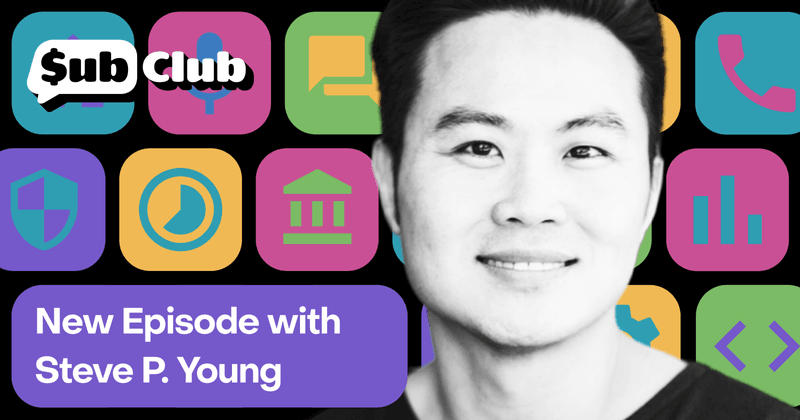Are you willing to break the rules to succeed? — Steve P. Young, App Masters
And why many of the top apps in your category probably are.

On the podcast: “Black hat” app optimization, the benefits and drawbacks of hard paywalls, and why, despite Apple and Google’s best efforts, so many apps still use dark patterns and even blatantly break the rules.
What are you willing to do to make your app succeed?
It turns out that the answer depends on your own moral code. “I’m not promoting these strategies,” says Steve P. Young, founder and CEO of App Masters and owner of Indie App Santa. App Masters has had its finger on the trigger of app marketing since 2010, specializing in growth hacking app downloads.
Even the top apps are still breaking the rules
App growth can be a dangerous tightrope walk. Some of the biggest apps use black hat strategies to game the system and increase their search ranking in app stores. The question then becomes, how far are you willing to go when you know what some of your competitors are doing?
From talking to many app developers, Steve feels confident in boiling the app business down to a funnel in its most simplistic form. Your aim is to get downloads and then convert those downloads. Steve sees App Masters’ mission as nothing more or less than ensuring people are aware of what’s happening in the space.
When you’re doing perfectly legitimate keyword research as part of your App Store Optimization (ASO) strategy, you have to keep in mind that people are probably breaking the rules. Keyword boost campaigns and buying fake ratings and reviews are the two most rampant.
Whether you do or don’t employ any of these strategies, the important thing is to realize that you’re in an unfair fight. And why shouldn’t indie developers have a fair shot at competing with the big guys?
Why more apps should try a hard paywall
When you’re looking at monetization, Steve says, it often comes down to psychology rather than morality. For anxiety app Rootd’s Ania Wysocka, a hard paywall in the midst of a panic attack isn’t what most users want to be confronted with — they need relief. As such, she allows them to X out of the paywall. But when they added the paywall to onboarding, Rootd doubled its revenue. At the same time, Steve says hard paywalls can work for a lot of apps, especially during the early growth stages.
“It’s your onboarding experience and it’s your paywall — whether it’s the plans that you have or whether it’s a long paywall, short paywall — those are the two areas that I would play around with the most.”
Data > opinions
Steve points out that this is because we’re often too focused on opinions — instead of asking if it’s data-driven. He shows data he’s confident in, and when people question his confidence on it, he responds that he waits before sharing it. “The last thing I want to do is share something I feel like worked once [only] … it doesn’t always work,” he explains.
On the podcast, Steve shares insight into some of the most effective black hat strategies he’s seen (that still work), the benefits and drawbacks of hard paywalls, and why — despite Apple and Google’s best efforts — so many apps still use dark patterns and even blatantly break the rules.
You might also like
- Blog post
Modeling attribution on iOS: what works, what doesn’t, and how to choose
How to navigate the messy world of SKAN, AEM, and probabilistic attribution — plus two practical frameworks to get a clearer picture of campaign performance.
- Blog post
Your sprints must pay for themselves: Dan Layfield’s product advice
What’s worth building? Dan Layfield shares a 3-bucket framework to help app teams prioritize features, fix churn, and ship faster.
- Blog post
Is monetization hurting your app’s user experience?
Don’t trade short-term revenue for long-term trust. How ethical UX can still drive effective monetization.

